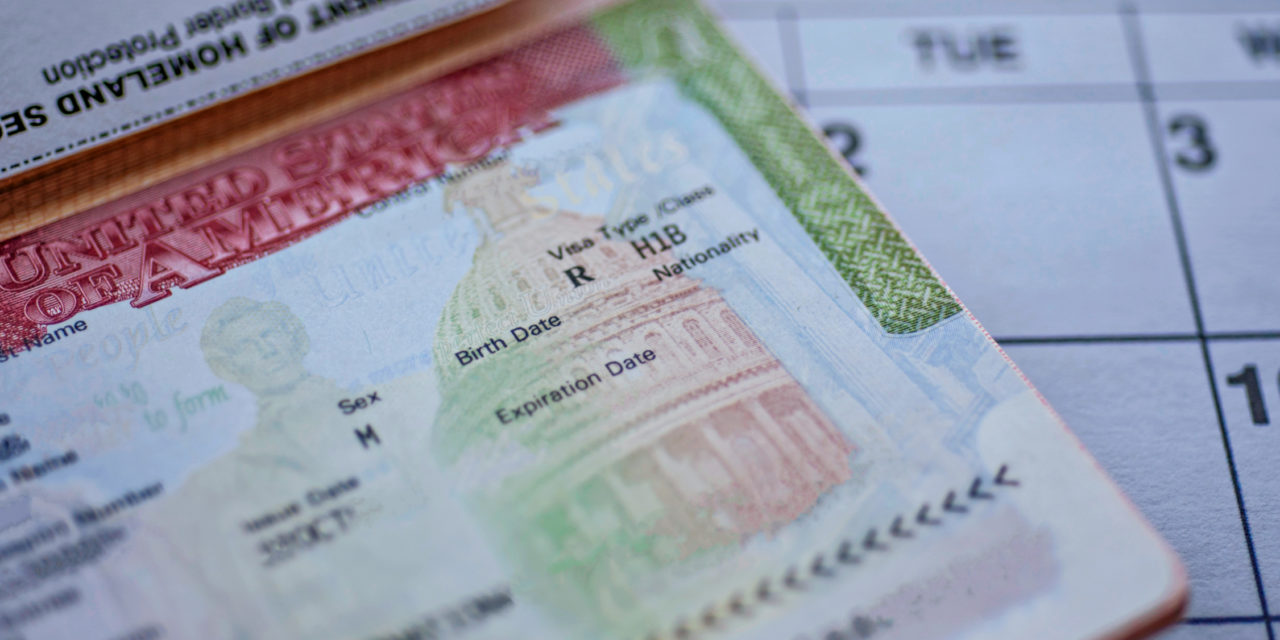For the first time, U.S. Citizenship and Immigration Services (USCIS) is requiring U.S. employers to register in order to have a chance to file an H-1B petition that is subject to the annual limits. Registration begins March 1.
The H-1B visa category allows highly educated foreign workers to temporarily work for employers in the United States. The new registration requirement applies to H-1B visa numbers subject to the statutory “cap” of 65,000 workers per fiscal year. It also applies to the 20,000 additional “master’s exemption” visa numbers for foreign workers with a master’s or higher degree from a qualified U.S. college or university.
Many U.S. employers and their attorneys are anxious about this new process. Some questions are still unanswered. But here is what USCIS has clarified:
When can employers register and submit an H-1B petition?
U.S. employers must have an “H-1B registrant” account to participate, which they can create beginning February 24. USCIS will accept registrations from March 1 at noon ET until March 20 at noon ET.
USCIS will notify selected registrants no later than March 31. The earliest date to file an H-1B petition will be April 1.
How does the new H-1B registration process work?
A U.S. employer must separately register each noncitizen for whom it intends to submit an H-1B petition subject to the annual limits. Up to 250 registrations may be submitted in one group with a single payment equaling $10 for each noncitizen—but only one registration per noncitizen.
For example, if an employer registers for 30 noncitizen workers, the fee would be $300. Employers or attorneys may edit registrations until submitted. After submission, they may delete a particular noncitizen’s registration without affecting the others submitted in the same group.
The registration process is streamlined compared to the filing of an H-1B petition. For the U.S. employer, USCIS asks for the legal name, any name under which the company does business, the employer identification number, and primary U.S. office address. The agency also asks for the legal name, title, and contact information for the person authorized to sign.
For the noncitizen, USCIS asks for legal name, gender, date of birth, countries of birth and citizenship, and a passport number.
USCIS also resolved earlier concerns about how it would handle registrations for noncitizens who have not completed a U.S. advanced degree program at registration time.
The agency has included a question about whether the registration is to be considered for the “master’s exemption” because the noncitizen has or will have earned the required degree by the time the H-1B petition is filed.
What happens when USCIS closes H-1B registration?
After registration closes on March 20, if USCIS determines it has more registrations than available H-1B visa numbers, it will conduct “lotteries” for the 65,000 “cap” and then the 20,000 “master’s exemption” numbers. USCIS will issue notices electronically for selected registrations and give 90 days, beginning with April 1, for filing the H-1B petition.
If USCIS needs more registrations to utilize the H-1B numbers for this fiscal year, it will select from those submitted but not selected.
Concerns about the new H-1B registration process
Attorneys are worried about technical difficulties and possible misunderstandings by clients in completing the required steps. If these technical steps aren’t completed first, attorneys won’t be able to pay registration fees and submit registrations for their clients.
Another major concern is whether the system will crash. Large numbers of U.S. employers and their attorneys are likely to access the system right after it goes live.
USCIS also is not providing any dedicated technical support. Instead, those with technical questions must use the agency’s regular customer contact line.
This line is already the subject of numerous complaints as return calls have taken up to 72 hours and are often outside of normal business hours. One attorney seeking technical support reported receiving a “Customer Contact” response stating that “they had met their quota for technology questions for the day.”
What happens when the volume of requests increases because of problems with an entirely new system? What happens if the payment system gets overloaded? Registrations not paid for by March 20 at noon will not be “properly submitted.”
USCIS has been vague about what will happen if the agency determines that the registration system will not work for this “cap season,” indicating only that it will give notice on its website. By regulation, USCIS can suspend the registration and return to “mass” filing of H-1B petitions as the agency did in 2019.
U.S. employers and attorneys would be faced with an extremely challenging situation if, for example, they are told on March 20 or later that USCIS is returning to the “old” system.
USCIS should be more proactive, particularly with technical support, to ensure that U.S. employers can hire the workers they need.
FILED UNDER: H-1B, USCIS


